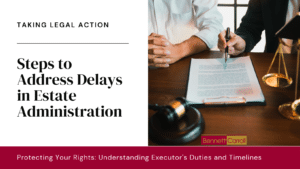What Constitutes a Will?
Your last will and testament is an extremely important document that articulates your wishes at the time of your death. While a will must be treated with care, it does not need to be etched in stone or written with gold leaf. In fact, the cliché example of a will scrawled on the back of a napkin can be valid and enforceable if the critical elements of the will are fulfilled.
Requirements for a Valid Will
A valid will must:
- Be in writing
- Be signed by the person making it (the testator) who has capacity at that time
- Be signed and witnessed by two people over 18 who are not beneficiaries of the will
So, a scrawl on the back of a napkin, a DIY will kit from a post office, or a will drafted by your solicitor could all be valid wills. These situations sometimes arise when a will needs to be completed urgently, such as when the testator is seriously ill. A validly executed will immediately supersedes any previous wills, although older wills should be retained in case they are needed later.
Challenges and Disputes Over a Will
While some haphazard wills are valid, they are more likely to be contested and challenged. Common challenges include:
- Undue Influence: Claims that the testator was pressured into making the will. (Learn more on this here)
- Lack of Capacity: Arguments that the testator was not of sound mind when the will was made. (Learn more on this here)
- Family Provision Applications: Beneficiaries disputing their share of the inheritance. (Learn more on this here)
These disputes can take 12 months or more to resolve and incur substantial legal costs.
Ensuring Your Will is Secure
To reduce the risk of disputes, ensure that:
- Your will is up-to-date and reflects your current wishes
- It is drafted by a solicitor to ensure clarity and legality
- It is properly executed and witnessed
This will help mitigate challenges regarding its validity and ensure that your estate is distributed as per your final wishes.
Frequently Asked Questions
Can I write my own will?
Yes, but it must meet the legal requirements to be valid. A solicitor can help ensure that your wishes are clear and legally binding.
Do I need a lawyer to make a will?
Not necessarily, but professional legal advice can help prevent disputes and ensure your will is properly executed.
What happens if I die without a will?
Your estate will be distributed according to intestacy laws, which may not align with your wishes.
Can I update my will?
Yes, you should review and update your will as your circumstances change.
Why are wills important?
Wills are important legal documents which protect your interests in the event that you lose the ability to make your own decisions, and when you pass away. They ensure that your wishes are fulfilled both for yourself (in the case of a Power of Attorney and for an Advanced Health Directive) and for your loved ones – in the instance where you pass away.
Why do I need a will?
A Will is a legal document which ensures your assets are distributed according to your wishes after you die. Your Will can cover all your assets such as your home, land, car, shares, bank accounts, insurance policies and personal items such as jewellery and family photographs. Essentially, through your Will, you can give to anyone anything that you own.
What happens if you do not have a will?
Having a will is essential. If you pass away without a Will, what is called the law of intestacy will take effect. This law means that your loved ones will not be allocated property in the way you had perhaps had in mind. Preparing a Will is quite a simple process. However, if it is not prepared correctly it will not be valid and it will therefore not be legally recognised. That is why you should have an experienced wills and estates lawyer prepare your will.
Need Help with Your Will? Contact Us Today
For further information, visit our Wills & Estate Page and Will & Estate Disputes Page.
Bennett Carroll Solicitors have offices in Brisbane, Gold Coast, and the Sunshine Coast. However, 90% of legal matters don’t require in-person visits, so we can assist you Australia-wide.
We are your legal problem solvers.
Other Useful Articles:
Why Free Will Kits in QLD Are Risky: Avoid DIY Wills and Protect Your Estate
Advantages of Testamentary Trusts- Will & Estate Legal Advice
What To Do When A Loved One Dies Without A Will
Other useful links:







